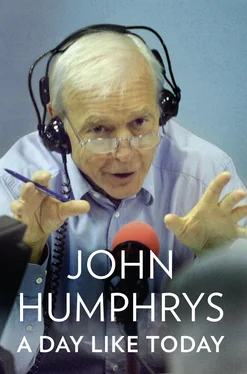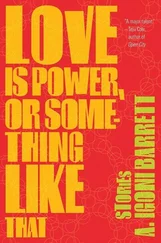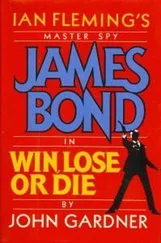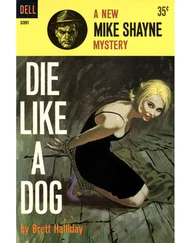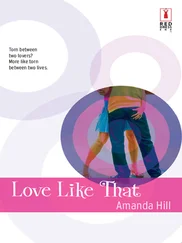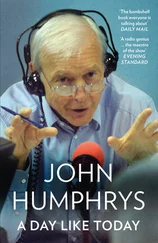1 ...8 9 10 12 13 14 ...23 In spite of my new name, my brief time on the Mail was not particularly distinguished. But I suppose I must have done enough to impress someone because, my editor told me after I’d been working there for a year or so, I had come to the attention of ‘London’. He seemed almost as surprised as me. For a young provincial hack, ‘London’ was not just beyond my wildest dreams. It had not even figured in them. Until now.
The Western Mail and many other papers, including the mighty Times and Sunday Times , were owned by the Thomson newspaper group. My editor told me the Sunday Times , no less, was thinking of giving me a job and I was to go to London to meet both its managing editor and news editor over lunch. I was terrified – and totally intimidated. I’d been to London only twice in my life and I had never eaten in a restaurant anywhere near as grand as Simpson’s in the Strand, which was where they took me. Nor had I met such imposing journalists before.
My own recollection of the lunch was more of trying to remember which knife and fork to use and agreeing with everything my hosts said rather than making a serious attempt to impress them with my journalistic brilliance. I had no doubt they would send me on my way with a pat on the head and a patronising ‘perhaps you’re not quite ready for the big time just yet’ and, had they done so, I suspect I’d have agreed and felt rather relieved. But they didn’t. They offered me the job of reporter on the paper’s brand-new Insight section. This really was the cutting edge of national investigative journalism. Insight, which exists to this day, was to become one of the most respected institutions on one of the most respected newspapers in the world. On the train back to Cardiff I wondered when I would wake up from this ridiculous dream.
The next day I told the Sunday Times I didn’t want the job.
Like so many things in life it happened because of a chance encounter. When I got back to Cardiff from London I’d gone to meet a few reporter friends for a drink in our favourite pub to do some serious boasting. One of them, Norman Rees, had left newspapers to work for the new commercial television station TWW. He out-boasted me. Newspapers, he told me, were old hat. Television was where it was at. He made it sound amazingly glamorous and exciting. I’d be famous – plastered all over everyone’s TV screens, the prettiest girls in Cardiff throwing themselves at my feet wherever I went! Why didn’t I join him? He promised he could persuade his editor to give me an interview if I was up for it. I was and he did and I got the job.
The Sunday Times were furious. They told me I had wasted their time (not to mention a fat bill at Simpson’s) and my name was on their blacklist. If I ever so much as dreamed of working for Times Newspapers again I could forget it – which made it all the more gratifying when, thirty years later, I was invited to write the main comment column for the Sunday Times and did so for five years.
It’s fair to say that Norman had rather overplayed the glamour and excitement bit. TWW was among the first companies to get a commercial television licence. It broadcast to South Wales and the West Country – a ridiculous cultural mix given that the two regions had virtually nothing in common apart from the Bristol Channel – and it was also among the first to lose its licence. That did not come as a great surprise. Most of us thought its owners were far more concerned with selling exciting new adverts. showing perfectly made-up housewives, with just a few stray blonde hairs escaping from their Alice bands, glowing with pride as they told us how happy they had made their hard-working husbands by discovering how to make the perfect gravy. Not to mention the sheer joy of washing dishes, knowing that it would make their hands just as soft as their face – which would make those hard-working husbands even more proud of them. Ah … the glory days of television advertising.
It might have been sexist garbage, but the profits poured in. Charging a fortune to broadcast commercials was so much easier than trying to produce insightful television programmes. The Canadian publishing tycoon Lord Thomson, who owned TWW and half of Fleet Street, famously called it a ‘licence to print money’ and so cross was he when they lost their licence that they abandoned the station months before they were supposed to. I suspect few tears were shed by the viewers.
My own contribution to TWW was limited but it taught me a lot – such as not getting drunk at lunchtime on Christmas Eve if you were live on telly that night. I did – and when I leaned in closer to try to read the autocue I fell off my chair. No one in the studio or the newsroom seemed to care very much – possibly because they were all as drunk as me. I also learned that nothing in the whole world is more scary than drying up on live television. I did it twice. It’s the most extraordinary sensation – as though you are floating just below the studio ceiling looking down on a young man whose body, tongue and brain have become totally paralysed.
The first time it happened I was trying to interview the most famous broadcaster in the land, the ultimate smooth-talking Irishman Eamonn Andrews, and the second time I was interviewing the finest rugby player Wales has ever produced, Bleddyn Williams. Bleddyn rescued me but Eamonn just smiled and waited for consciousness to return to me, which it did after an hour. Or maybe it was only five seconds. Either way, the scars remain.
One memorable (for me) story was the disappearance of a middle-aged man who had vanished from his home in Cardiff without trace for no apparent reason. An everyday event, perhaps, but this was local telly and ‘man disappears’ was news. So I was sent off to interview his wife. She was a nurse – clearly in great distress – and she greeted me warmly, sat me down with a cup of tea and talked at length about her fears for what might have happened to her beloved husband. She shed a quiet tear and my heart bled for her. Some months later he turned up. The police found him underneath the patio on which I had been sitting taking tea with the loving wife who buried him there after she had murdered him.
By now I had been a journalist for the best part of ten years. I was to practise the trade for another fifty years, travelling the world, reporting on many of the great events that would come to define the century. I would, in the words of the old cliché, have the great privilege of occupying a ringside seat at history. I would watch an American president forced to resign in disgrace. I would report on earthquakes and famines and wars around the globe. But nothing would compare with what happened just a few miles from where I was born, on 21 October 1966. I was still a young man who had barely set foot outside South Wales. I watched a community deal with a tragedy I still struggle to comprehend. It left me with memories that will never fade, an immense respect for the strength of human beings faced with horror beyond comprehension and a lifelong distrust of authority.
On that terrible morning I had turned up as usual just after nine in the TWW newsroom, and I wandered over to the Telex machine that was always clattering away spewing out endless, useless information. One relatively small story had caught my news editor’s eye. It reported that there had been a tip slide at Aberfan in the Merthyr Valley.
There was nothing particularly unusual in that. It often happened. The waste tips above the old collieries were notoriously unstable and shamefully neglected. They were slipping and sliding all over the valleys. Sometimes a slide would take the occasional miners’ cottage with it, but mostly they just made a mess of the road and the land beneath. This time it seemed it might be a little more serious than that.
Читать дальше
